Health and weight have a complicated relationship. On the one hand, carrying a bunch of excess weight on your body can create a lot of unnecessary stress. But, on the other hand, being thin doesn't automatically mean that you're healthy.
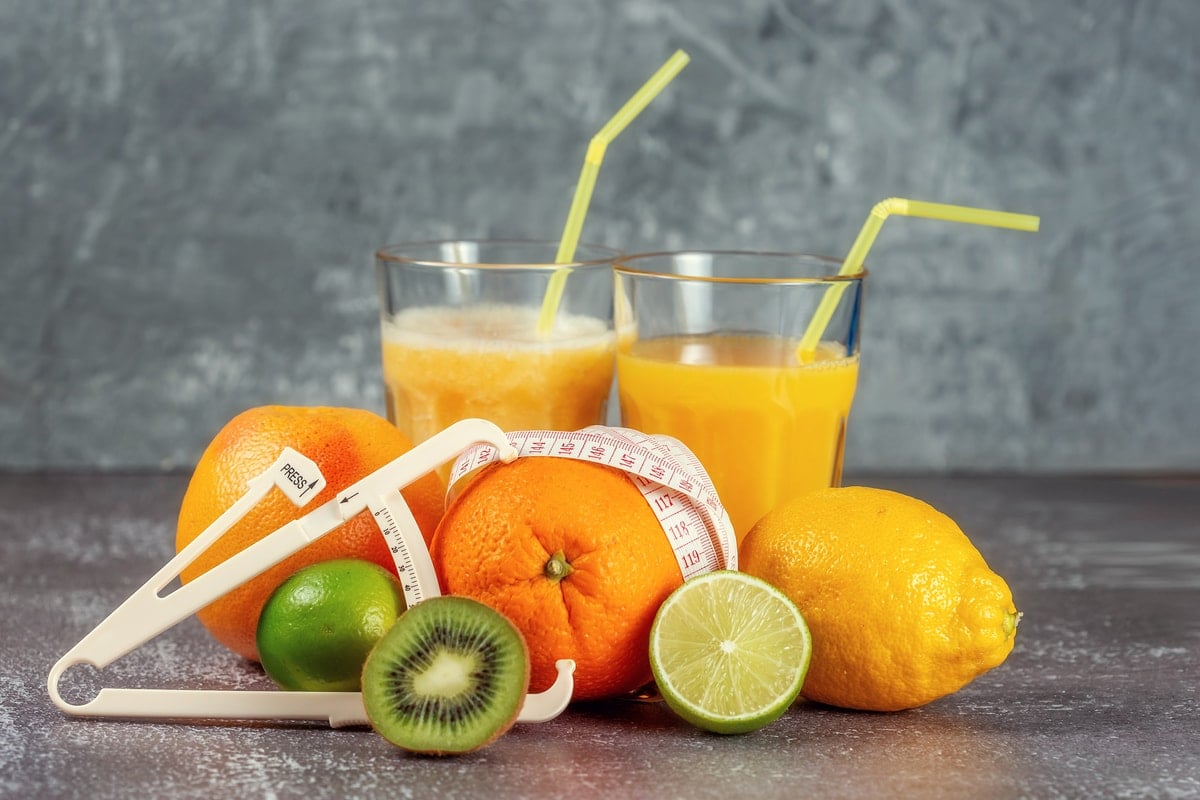
Because of this complex interplay, many people believe that eating nutritional food won't lead to weight gain. After all, if you're mostly consuming fresh fruits and vegetables, you should be pretty skinny, right?
Well, that's not always the case, and your biology can affect your weight as much as your diet. In some cases, taking the "healthy" route can actually cause you to add more pounds, not shed them.
Table of Contents
In this article, we want to look at the relationship between juicing and weight gain. Before we begin, keep in mind that increased weight isn't automatically a bad thing. Instead, it's much better to focus on your nutrition and overall health than a number on a scale.
That said, if you're juicing and gaining weight, it can seem a bit frustrating. So, we're going to find out why it happens. Here is everything you need to know.
What is Juicing?
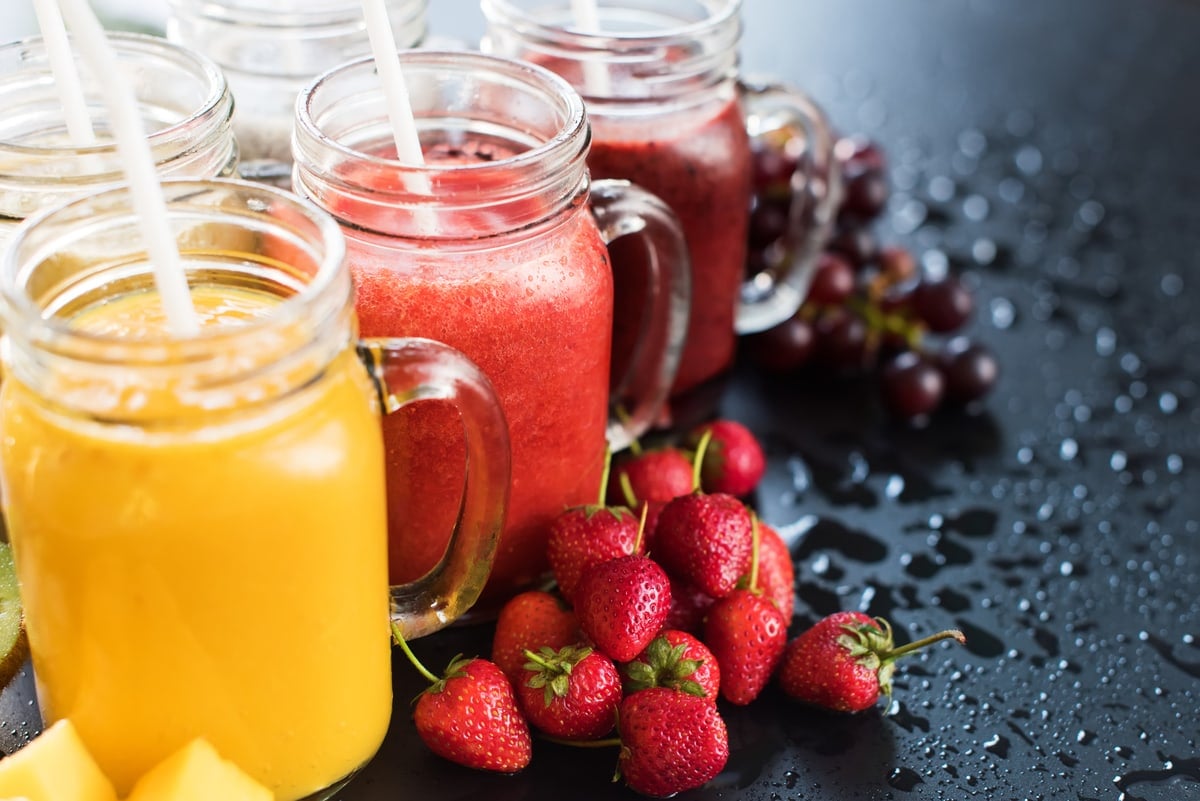
All fruits and vegetables have at least some juice inside. However, some varieties have much more liquid than others. Juicing is the process of extracting those fluids from your food.
There are two primary ways to juice - manually and automatically. Manual juicers are pretty limited in their abilities because they require physical effort to work. No matter how strong you are, your arms will wear out after pressing a dozen or so fruits.
Instead, it's much better to use an electric juicer machine. There are three primary varieties that you can buy: centrifugal, masticating, and triturating. Here is a quick overview of each:
- Centrifugal Juicers - If you want something quick and easy, get a centrifugal juicer. These machines are fast and efficient, but they can leave behind a lot of wet pulp.
- Masticating Juicers - These devices are an upgrade from centrifugal juicing. Instead of blades, these juicers use a grinder to make cold-pressed juice. You get a higher yield, but these machines are more expensive.
- Triturating Juicers - If you're really serious about juicing, you want one of these models. Triturating juicers use two grinders to get every last drop of liquid out of your ingredients. However, they can cost hundreds of dollars, so they're not for the faint of heart.
How Can Juicing Make You Gain Weight?
At first, the idea of gaining weight from drinking juice can seem preposterous. If you were wearing a monocle, it would likely pop out (very dramatically, of course). However, it is possible to add pounds when using all-natural fruits and vegetables. Here are a few reasons why your scale may go up instead of down once you start a juicing regimen.
Hidden Calories
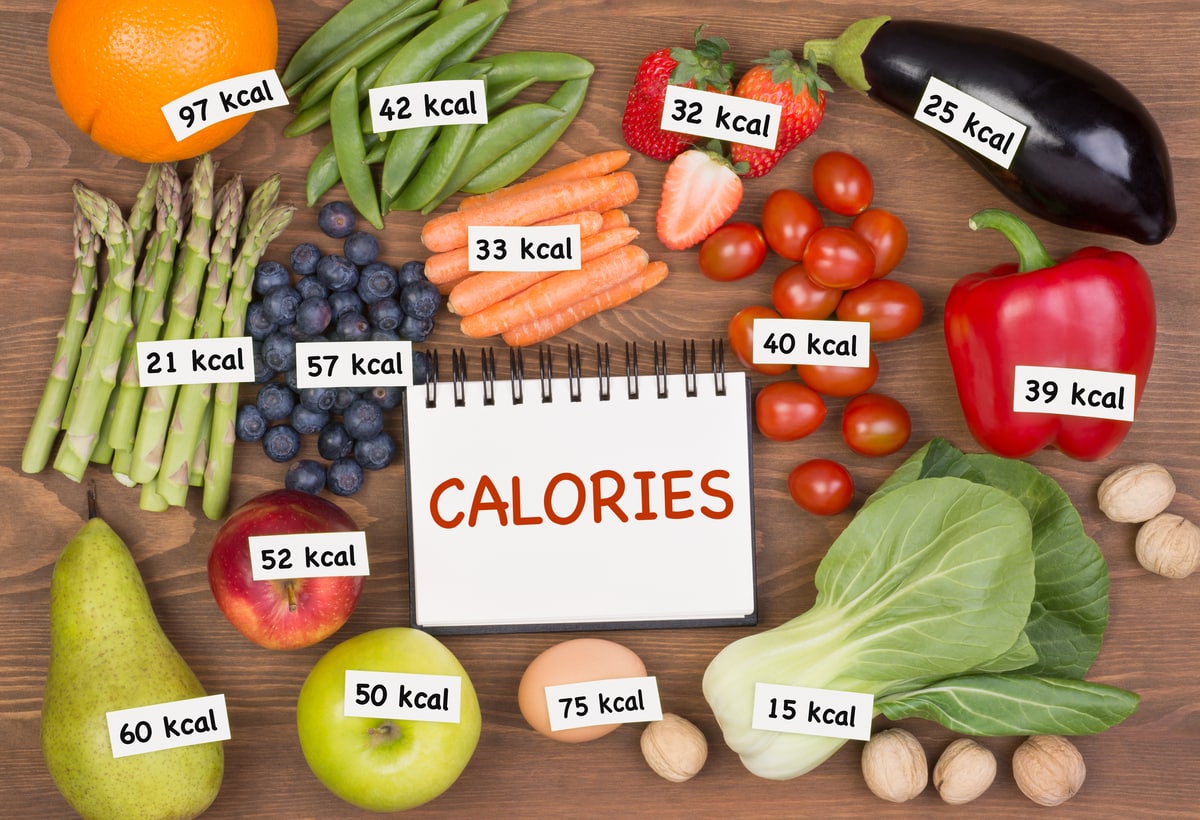
Quick, how many oranges does it take to make one whole glass of fresh orange juice? If you're drinking an eight-ounce portion, it can take up to four fruits. If you're like us and prefer a 16 or 20-ounce glass, you're looking at a whole bag of oranges.
One large orange contains 86 calories, so if you use five or six for your juice, you're looking at 400-plus calories total. That's just from one glass! When juicing, it's easy to neglect how many calories you're really getting. Even worse, if you're adding juice to your existing diet, those calories will add up fast.
Added Sugar
If you're not used to juicing vegetables, it can take a while to acclimate to the taste of green juice. Even though ingredients like spinach, kale, and other leafy greens are super healthy, they're hard to swallow (literally). So, new juicing enthusiasts tend to drink more sugar than they really should.
When it comes to weight gain, excess sugar consumption can make it far easier for your body to hold onto fat. According to studies, limiting your dietary sugar can help you lose weight, and the opposite is also true. Again, if you're adding fresh juice to your current diet, you could be adding pounds far faster than you realize.
This side effect is much like switching to diet soda from regular soda. By cutting out the sugar, you're doing your body a huge favor.
Low Metabolism
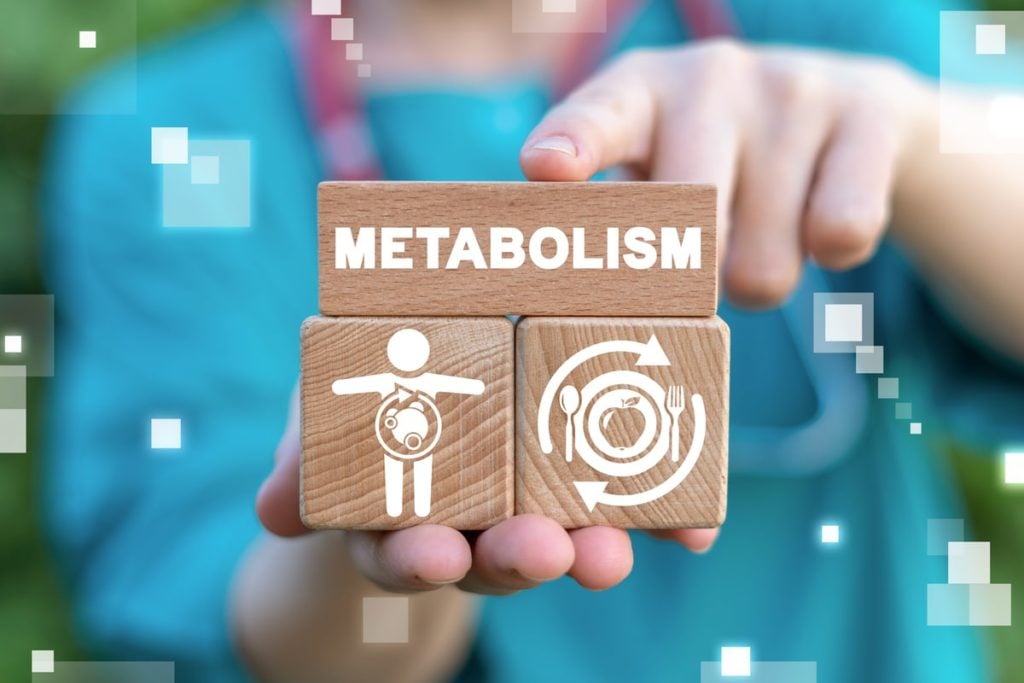
Some people will use juicing as a way of "cleansing" their bodies. While the science is unclear on the tangible health benefits of detox diets, they can provide some valuable nutrients and vitamins.
That said, extreme juice cleanse programs can lower your calorie intake significantly. When that happens, your body goes into conservation mode, meaning that it holds onto as much fat as possible. This process is a built-in defense mechanism to prevent starvation. Unfortunately, it also has the side effect of making you gain weight, particularly when you start eating whole foods again.
For sciencey types, this process is called thermogenesis, and it can keep going long after you stop your cleanse. If you do a detox for a couple of days, the damage won't be too bad. However, if your program goes for more than a week, you could gain weight for a while afterward. The effect is even worse if you do cleansing diets regularly.
Lack of Fiber
A big reason why fruits and vegetables are so healthy is that they contain a lot of dietary fiber. Since your body can't absorb fiber, it helps push fat and other waste through your digestive tract.
When juicing, you're removing almost all of that fiber from your ingredients (assuming you don't reuse the pulp). This lack of fiber means that your body absorbs more sugar and calories than it would otherwise. Over time, this absorption can lead to weight gain by juicing.
Water Weight
One benefit of drinking pure fruit juice is that it helps you stay hydrated. Vegetable juices are even better because they don't have as much natural sugar. That said, when you first start juice fasting, you may notice a slight weight increase because your body is holding onto more liquid. Once you adapt to fruit juice consumption, you should shed that water weight pretty fast.
Tips and Tricks for Avoiding Weight Gain From Juicing
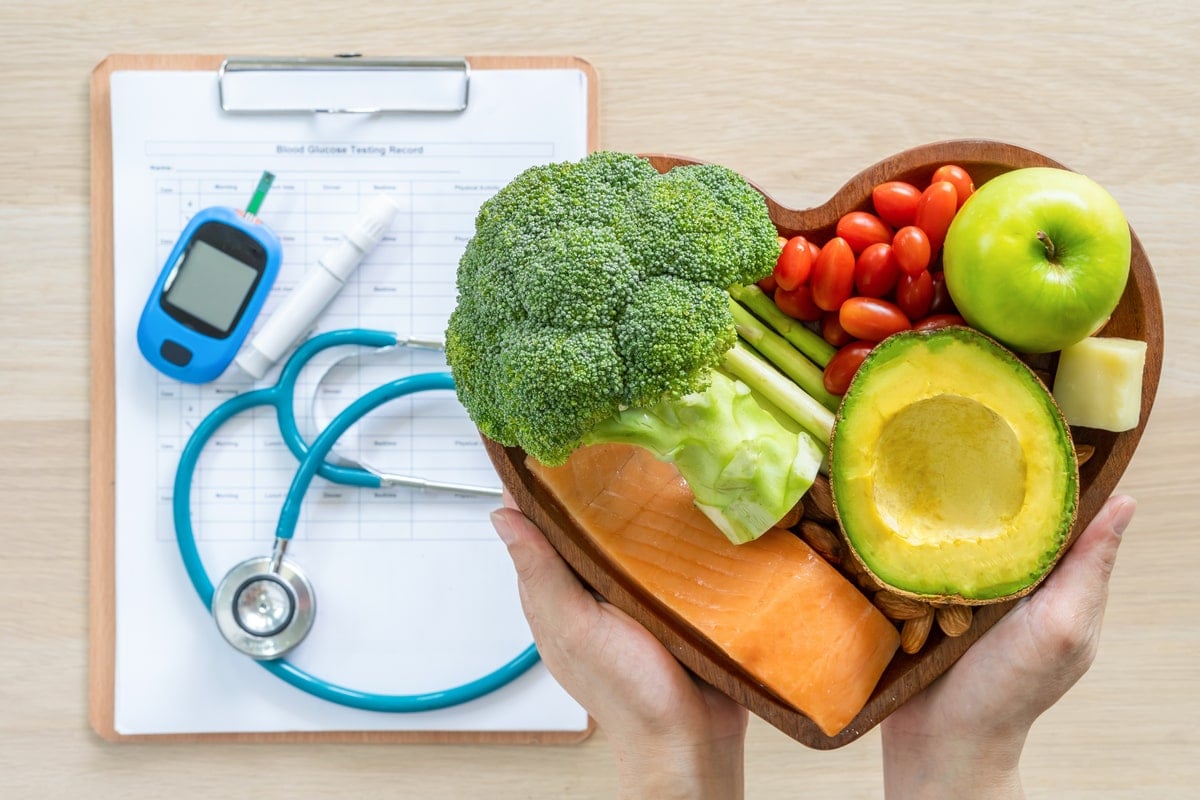
Thankfully, each of these issues can be addressed with careful planning. Here are our top tips for getting the most out of your juicing habit without the added pounds.
- Don't Toss Your Fiber - While drinking thick, pulpy fruit juice can be off-putting, you can still get your fiber in other ways. For example, adding moist pulp to baked goods (i.e., muffins) gives you better consistency and flavor. Another way to keep fiber in your beverage is to blend your fresh fruit and vegetable ingredients into smoothies. A green smoothie will have way more nutrients than 100 percent fruit juice.
- Try to Stick to Low-Sugar Fruits and Vegetables - Although green juice is an acquired taste, it's worth it to help your tongue get used to the flavor. At first, you might have to add sugar or syrup to your juice. However, over time, you need to wean yourself off the sweet stuff. Your body and your scale will thank you for making the switch.
- Pay Attention to Your Caloric Intake - Overall, the goal shouldn't be to restrict the number of calories you eat in a day. Instead, you need to balance your liquid calories with healthy foods. On the one hand, don't go on a strict detox diet, as it could do more harm than good. On the other hand, be aware of how many calories you're adding with fresh juice. Another point to remember is the difference between healthy fat and bad fat. Eating high-fat foods isn't bad for your health. Instead, eating fatty processed foods will make you gain weight. So, when looking at juice recipe options, don't be afraid to add some fat-centric ingredients like avocados or nut butter.
- Exercise Regularly - When it comes to your health, nothing is quite as potent as exercise. Not only can a good workout help regulate many of your body's systems, but it can also help you avoid weight gain. Juicing can also improve your post-workout recovery since you're adding so many vitamins and nutrients to your muscles. Just be extra careful about exercising if you go on a juice detox. If you burn off too many calories, you could lower your metabolism and wind up gaining weight.
Best Fruits and Veggies for Juicing and Weight Loss
Realistically, most fresh fruits and veggies are low in calories, but some varieties are much better than others. Also, remember that it's better to have a balanced diet than one that restricts your intake. Here are some excellent juicing options to incorporate into your recipes:
Watermelon
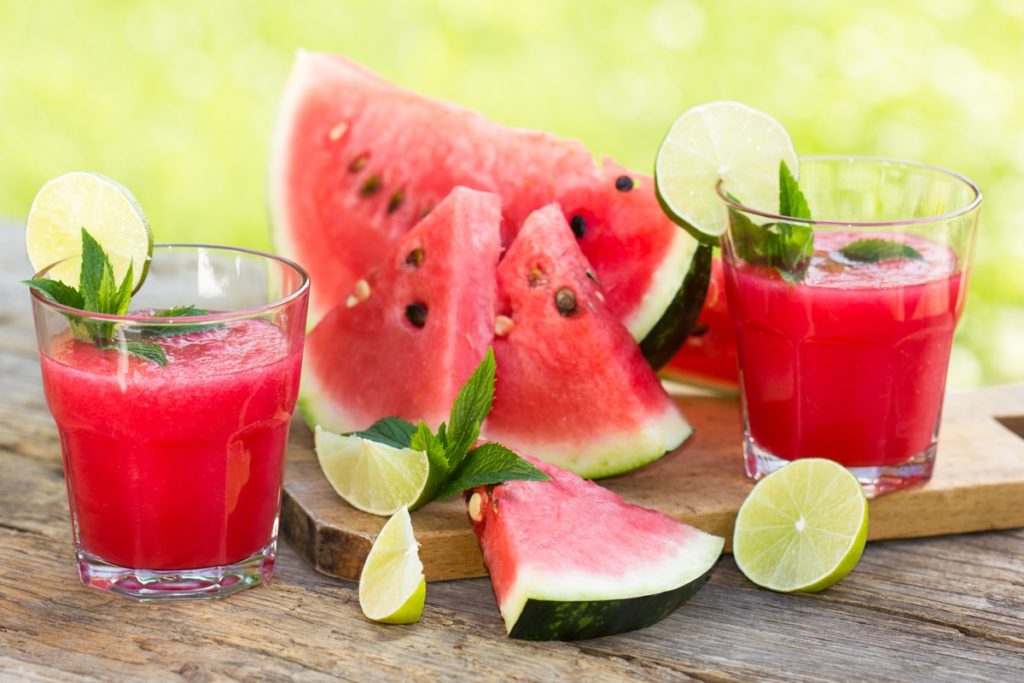
Watermelon juice is so helpful because it contains a lot of water (big surprise, we know). Hydration is crucial for your overall health, and it can help you avoid weight gain. Plus, watermelons are super easy to juice - you don't even need a fancy juicing machine to do it!
Pears
Any fleshy fruits and vegetables are going to have a lot of leftover pulp. Remember that pulp has all the fiber, so try to eat as much of it as possible. Pears have lots of fiber and other nutrients (like vitamin C) that can help you manage your weight. Pear skins also have polyphenols and antioxidants, making it crucial to eat the skin and not throw it away.
Grapefruits
Grapefruit juice can be a bit too tart for some people, so we recommend adding it to a recipe with other ingredients. Grapefruits have potent enzymes that help your body burn fat. Plus, there's a lot of juice inside one fruit, making it much easier to stay hydrated. When juicing, just make sure to have the rind facing up so that you don't get a shot of juice in your eye (if cartoons are to be believed).
Apples
Like pears, apples are full of fiber and a natural ingredient called pectin. As with pears, you want to incorporate as much of the pulp as possible into your apple juice. Fortunately, leftover apple mush is perfect for many dishes, including muffins, oatmeal, and even scrambled eggs. If you dry the pulp and bake it, you can turn your apples into fruit leather.
Berries
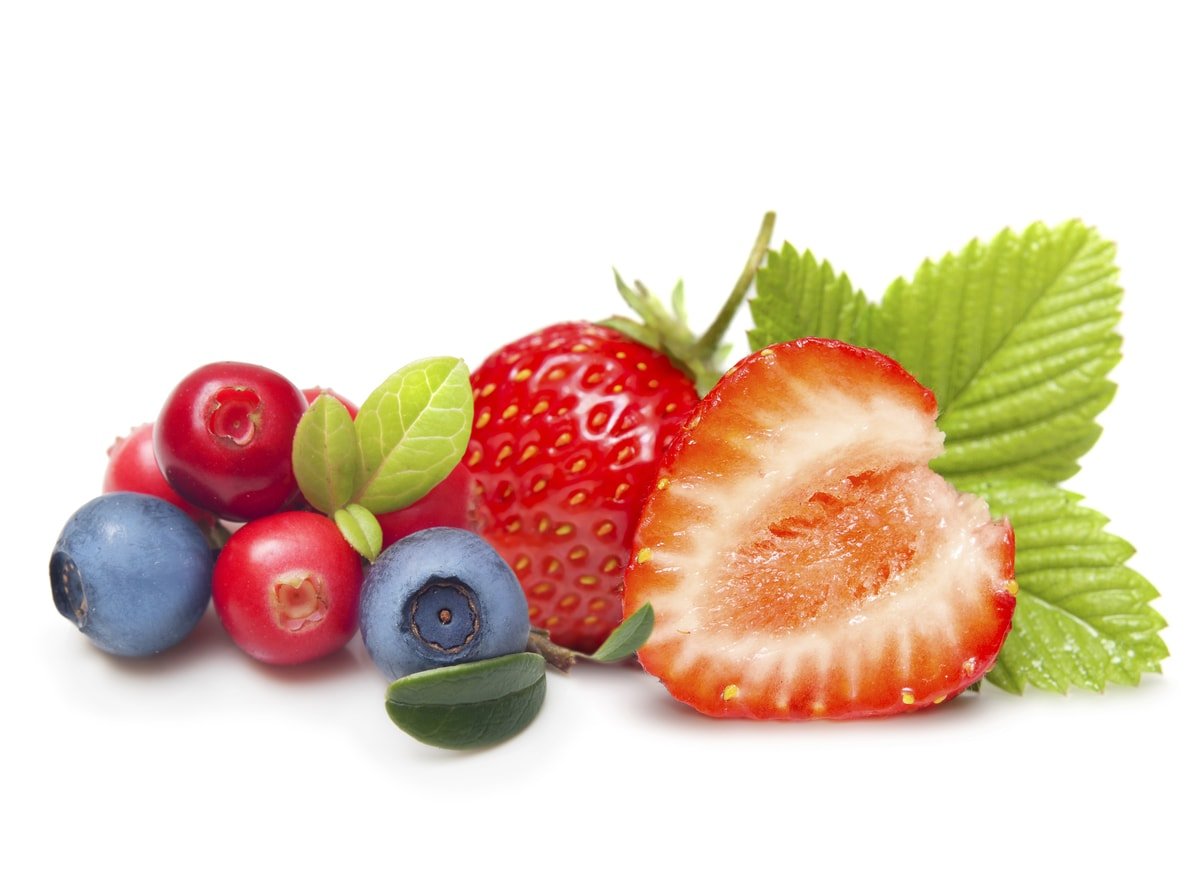
If you're going to use berries, we highly recommend adding them to a smoothie. While you can juice berries with an electric juicer, the process can be a bit messy, and you're going to have a lot of mush leftover. All berries are good for nutrition and weight loss, thanks to their abundance of vitamins and minerals. Strawberries, blueberries, and cranberries are just some of the varieties that can help you avoid gaining weight from juicing.
Leafy Greens
Spinach, kale, and chard are often considered superfoods because of their tangible health benefits. Although these ingredients are hard to juice, they're worth adding to any beverage you make. Leafy greens are ideal for weight loss because they help you feel full for longer. Ideally, you'd eat these vegetables whole, but you still get a decent effect by juicing them too.
Celery
While celery juice won't burn fat or help you shed pounds, it does have fewer calories than most other juice cleansing options. Plus, it's easy to add celery juice to other ingredients since it will absorb their flavors quickly. If you're not a fan of celery, try cucumber juice instead. It offers the same benefits with a milder taste.
Stone Fruits
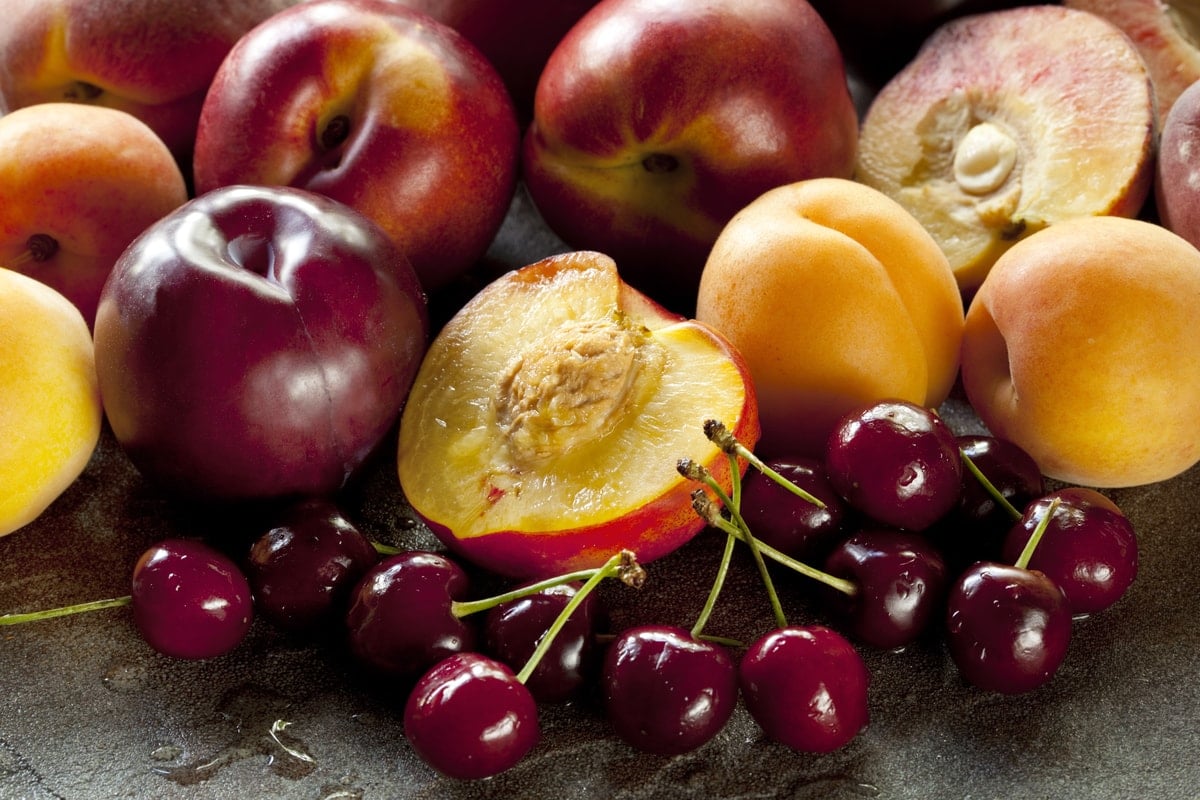
Any fruit that has a large pit in the middle is considered a stone fruit. Some examples include peaches, nectarines, and even avocados. When it comes to juicing, most of these fruits have a high yield, making them an ideal addition to any recipe. However, if you're going to use avocados, you'll have to put them into a blender. Otherwise, your freshly squeezed juice will be a lot thicker than you might prefer.
Beets
Like celery, beetroot juice has few calories and tons of nutrients. That said, beet juice is sweet, so it can affect your blood sugar slightly. We recommend adding beets to your juice fast or juice diet, provided that you still have a sufficient caloric intake overall.
Pineapple
You know how pineapple creates a tingling sensation when you eat it? That's the acid breaking down the proteins on your tongue and mouth. This process is also why pineapple juice is such a potent marinade. Once the juice is inside your body, it can help break down fat and other foods faster so that they don't stay in your body as long.
Chia Seeds
While you can't juice chia seeds, you can add them to any drink for a healthy boost. These seeds are chock full of nutrients, and they can help you stay full, meaning that it's harder to gain weight. Other seeds can have a similar effect, such as flaxseed or sesame seeds.
Bottom Line: Get Healthy, Not Overweight
Overall, juicing is an excellent way to incorporate more nutrients into your diet. As long as you're smart about your recipe selection, you shouldn't have to worry too much about weight gain. Even if you add a couple of extra pounds, don't sweat it. Your body is a complex machine, and it's impossible to be precise about your weight. As long as you focus on health, you'll be just fine.
Sources:
https://www.bmj.com/content/346/bmj.e7492
https://www.ncbi.nlm.nih.gov/pmc/articles/PMC3673773/
https://pubmed.ncbi.nlm.nih.gov/27136388/
https://pubmed.ncbi.nlm.nih.gov/15797686/
https://pubmed.ncbi.nlm.nih.gov/21288350/
https://pubmed.ncbi.nlm.nih.gov/18439712/
https://pubmed.ncbi.nlm.nih.gov/22082311/
https://pubmed.ncbi.nlm.nih.gov/17556681/
https://www.sciencedirect.com/science/article/abs/pii/S0023643808001345
https://www.healthline.com/nutrition/celery-juice-for-weight-loss#weight-loss

Leave a Reply